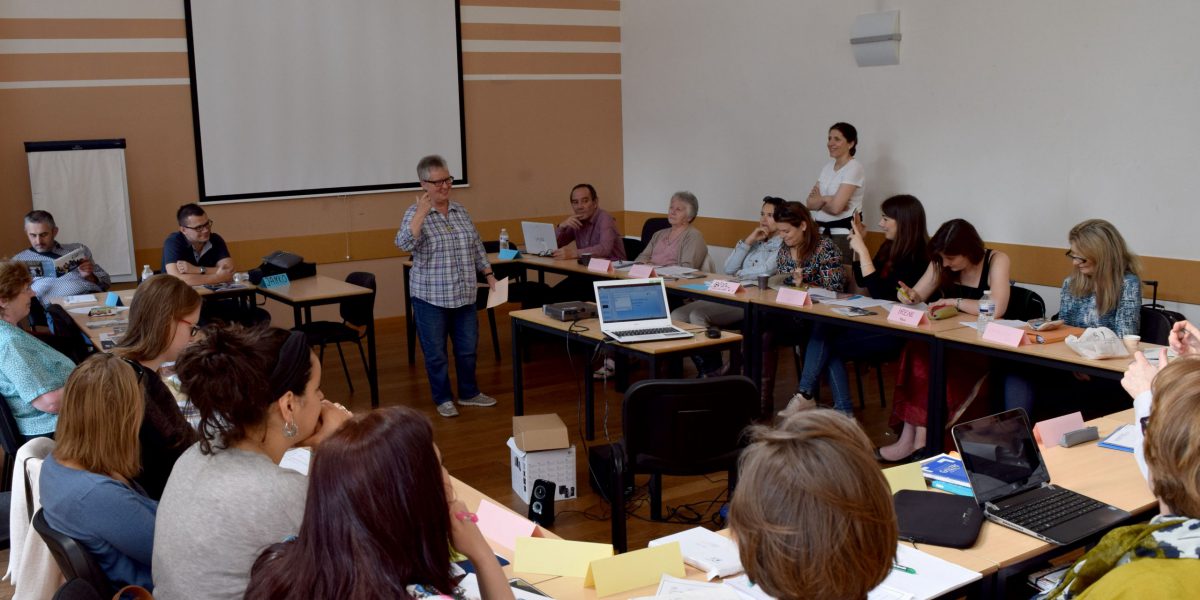10th Detention Visitors Support Group in Brussels
14 June 2016

Brussels, 14 June 2016 – Last week, JRS Europe hosted a three-day workshop for detention centre visitors from across Europe for the 10th year running. The special training of this year’s Detention Visitor’s Support Group (DVSG) focused on identifying victims of human trafficking.
Sister Beatrice Mariotti (Comboni Sisters) and Sister Dagmar Plum (Medical Mission Sisters), who have collaborated as volunteers with JRS Germany for many years as well as the Solwodi network (Solidarity with women in distress) led this special training on human trafficking.
Sister Mariotti covered various aspects such as the European legal framework, victim identification, and the fours Ps of protection, prosecution, prevention and partnership. Finally, Sister Plum presented the work of RENATE: Religious in Europe Networking Against Trafficking and Exploitation. As a board member of the organisation she was able to give a detailed insight into its work and presented its mapping report of 2015 which covered 13 countries across Europe.
The workshop aimed to give a full overview of the human trafficking process which was most starkly portrayed during the screening of a documentary about Nigerian women trafficked to Europe. It tells the stories of four Nigerian girls whose dream of a better future turned into a prostitution nightmare on the streets of Europe.
Around 30 participants – social workers, legal advisers and cultural mediators – from 9 different European countries attended the workshops and also compared notes on detention practices which vary greatly between countries. JRS Europe project development coordinator Carola Jimenez-Asenjo organised the event and facilitated several information sharing sessions.
On the last day, JRS Europe advocacy and policy officer, Dr Mark Provera led an advocacy session focusing on the development of EU legislation and the concerning new proposals on the table regarding detention. This was followed by a session led by JRS Europe communications officer, Oscar Spooner about how to shift the narrative on detention, empowering migrants to speak for themselves and using new media and tools to reach new audiences.
The countries represented at the 10th DVSG were: Belgium, Britain, Croatia, Former Yugoslav Republic of Macedonia, Hungary, Italy, Malta, Portugal, and Spain.
Around 30 participants – social workers, legal advisers and cultural mediators – from 9 different European countries attended the workshops and also compared notes on detention practices which vary greatly between countries.
